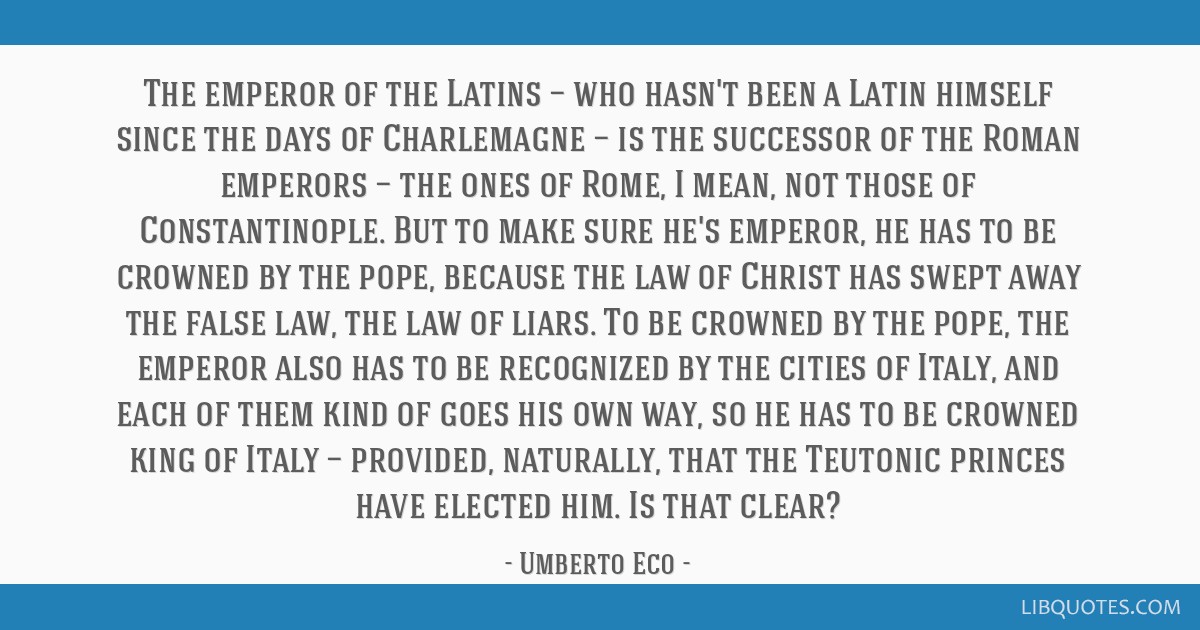The emperor of the Latins — who hasn't been a Latin himself since the days of Charlemagne — is the successor of the Roman emperors — the ones of Rome, I mean, not those of Constantinople. But to make sure he's emperor, he has to be crowned by the pope, because the law of Christ has swept away the false law, the law of liars. To be crowned by the pope, the emperor also has to be recognized by the cities of Italy, and each of them kind of goes his own way, so he has to be crowned king of Italy — provided, naturally, that the Teutonic princes have elected him. Is that clear?
Chapter 3, "Baudolino explains to Niketas what he wrote as a boy" - Baudolino (2000)























